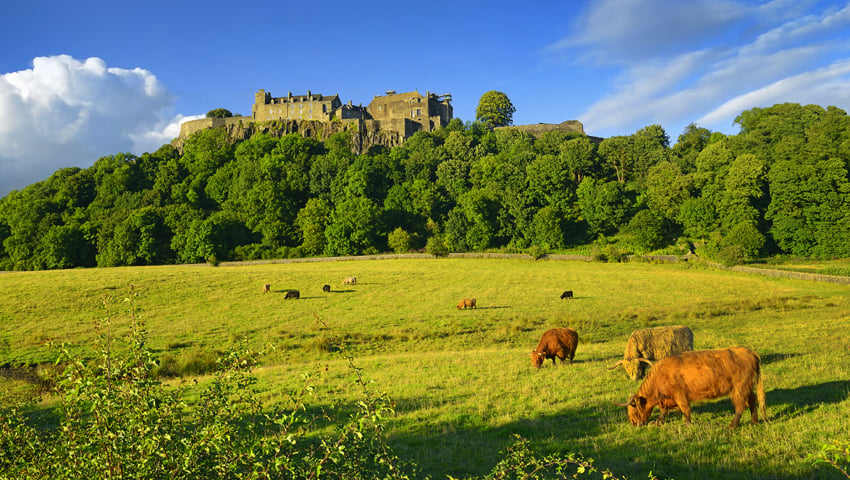UK agriculture needs a radical rethink, says a regenerative agriculture consultant for whom working with nature, rather than trying to control it, is key to the future of farming.
Angus farmer and co-founder of the European Alliance for Regenerative Agriculture (EARA), William Houstoun, is calling for a redesign of UK agricultural policy based on the agroecological principles outlined in EARA’s White Paper, Towards a farmer-centric CAP rooted in agroecosystem health.
The paper, which was published in April proposes “a switch to fair and simple hectare-based direct payments, coupled to agroecological performance.” It says, “The CAP can decrease farmer dependency on external inputs and increase on-farm climate change resiliency. Anchored in result-based payments for agroecosystem health, such a farmer-empowering CAP design [would] foster simplification and planning security with a long-term perspective in the agricultural sector.”
Houstoun says, “we need to do something and we need to do it quickly” to save the soil on which farming relies and the business environment in which it operates.” He is however optimistic that, with innovative thinking and an open, holistic mindset, agriculture can be transformed from a process of degradation to regeneration.
Houstoun’s particular focus is on Scottish Government policy, but he says that with the Agriculture and Rural Communities (Scotland) Bill already at Stage 2, his sights are set on shaping the next bill. He said, “We need to start a conversation now to influence the next round of policy discussions so that subsequent agriculture bills in Scotland are better planned and more holistic in approach.”
He also hopes that EARA will play an important role in influencing the next round of CAP policy from 2027 and that the corresponding ripple effect will help direct future agricultural policy in Scotland and the UK.
He said, “The formation of EARA, this white paper, and connected pilot projects across European farms, have all been driven by our concerns about people, nature and the competing interests of food, farming, environment and health, which should be working in harmony not opposition. We don’t pretend to have all the answers but it is clear we have got to start listening to nature rather than city and corporate interests.”
For Houstoun, watching debates over land use becoming polarised between the needs of the environment and the needs of farming, the most important message is to work with nature. “We are part of nature, not separate from it. If we work with nature, the opportunities are incredible but if we keep fighting nature, nature will win. Nature always wins in the end.”
Houstoun spoke out after Britain’s wettest winter on record and unprecedented flooding left vast swathes of the British countryside under water. He said, “Scotland is ready for this conversation. Having visited farms and National Parks all over the world, I realise how lucky we are in Scotland with our environment, but looking around Angus I can see what a mess we are making of some of our farmland. Many fields, or parts of fields, will not grow any crop this year. We can only abuse the soil for so long. When we run out, that’s it – if you don’t believe me visit the ‘fertile crescent’ in Lebanon and Iran where many of our crops, including wheat, originated. This was once prime farmland and for one reason or another is now little better than desert.
“However, our own land and that of other regenerative farmers has been relatively unaffected by the rain. Soil degradation can be reversed if we pay attention to the soil and allow it to regenerate. It’s surprising how quickly the soil can recover and a policy that penalises soil mismanagement and correspondingly rewards best practice is crucial in moving forward.
“It is not too late to change,” he said. “There is a way out of this mess and I can honestly say that the farmers who are genuinely regenerating their land are the happiest and most profitable I have met.”
Guiding clients in transforming their farms, estates and rural businesses into holistically managed, regenerative and profitable organisations, he emphasised that people had to look at and influence the bigger picture. “Regenerative practices don’t work in isolation. It has to be a holistic and ongoing process. It is more appropriate to say regenerating rather than regenerative, which suggests stasis.”
Houstoun is Scotland’s first Savory-accredited consultant.
